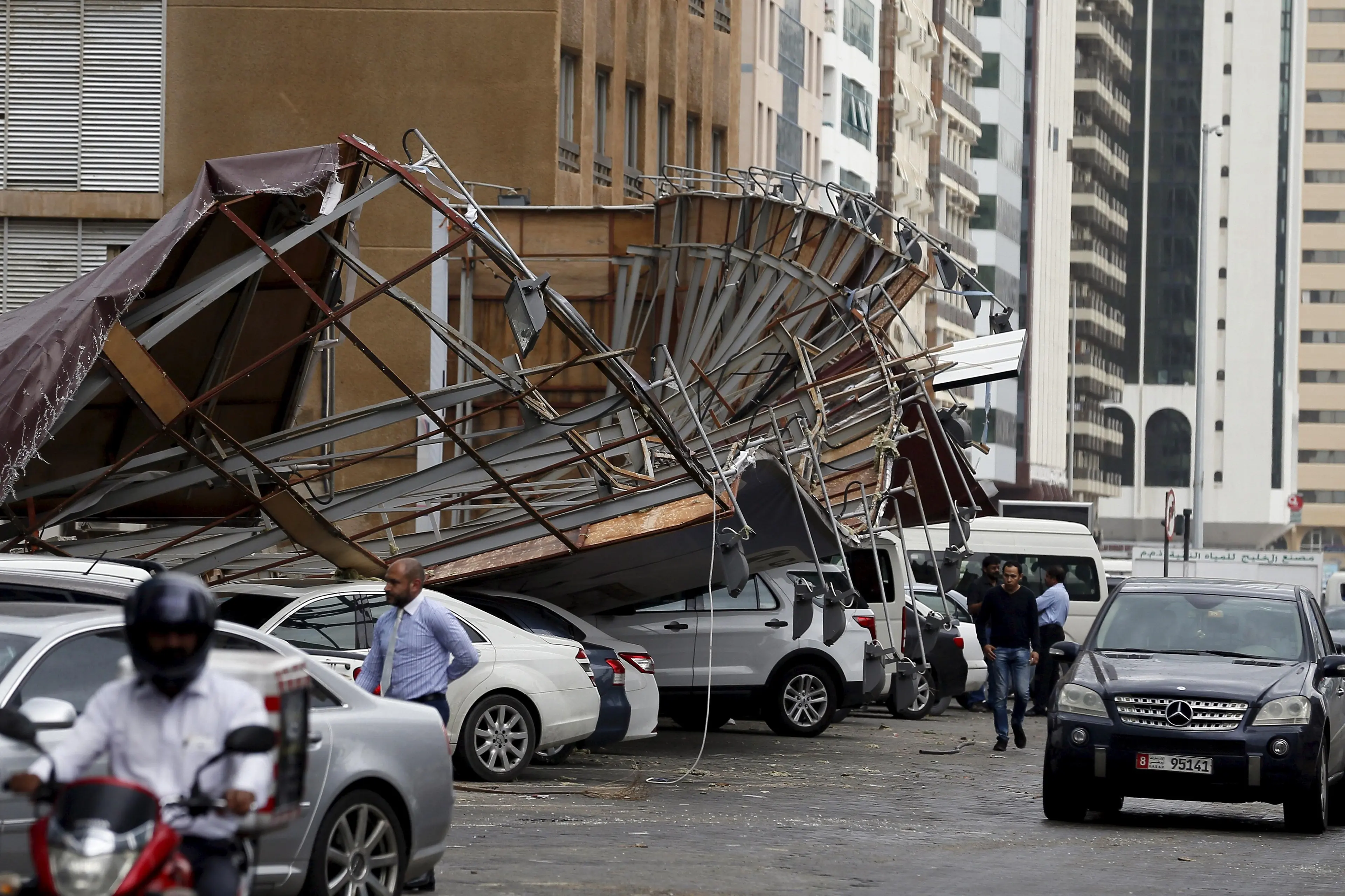PHOTO
New laws could have a cost implication for developers and building owners, say experts
Abu Dhabi's move to amend building and infrastructure regulations in response to severe storm damage last week underscores the maturing of the industry, but may have cost implications for the sector, analysts said.
The National Emergency Crisis and Disaster Management Authority announced plans to introduce new regulations to make sure buildings are better equipped to handle extreme weather conditions following three days of strong winds and heavy rainfall last week, according to a report published by Abu Dhabi-based The National newspaper on Sunday.
"The extreme wind and rain 'teased out' weaknesses in a number of buildings' exterior protection, such as cladding, roofs and window seals, and also drainage systems which were not designed to cope with such amounts of rainfall in such a short period of time," Graham Howat, head of property asset management services at real estate consultancy firm JLL, told Zawya.
"Certainly better drainage in and around buildings would have helped," he said. "Many buildings suffered flooding which, for rare, extreme circumstances such as last week, would be difficult to prevent without huge investment in flood defences -- a rare and questionable requirement in the Middle East."
Abu Dhabi authorities received around 860 calls reporting damage due to the storm and around 2,000 maintenance workers were assigned to handle the clear up, The National reported.
"The new regulations are hugely popular for the industry as, unfortunately, there are a number of landlords failing to invest in the upkeep of their properties," said David Godchaux, CEO of Core, the UAE subsidiary of real estate firm Savills.
"However, these improvements might add to the construction costs for the developers who in turn may charge a premium for such properties from the investors and end users," he added.
Despite concerns over costs, experts agreed the step demonstrated a move by authorities to make builders and owners more accountable for construction and maintenance standards.
Real estate agency CBRE Middle East was one of several industry observers who welcomed the new proposals as a positive step, even if details about the changes have yet to be announced.
"The proposed move to amend building and infrastructure regulations reflects the maturing nature of the Abu Dhabi market... Whilst the finer details remain unclear, more comprehensive safety checks and stringent measures could have obvious implications for the construction industry, both in terms of time and cost of development," Matthew Green, head of research and consulting for the United Arab Emirates at CBRE, said.
He pointed out that the latest regulatory proposals follow in the footsteps of Law No. 3 of 2015, which introduced a number of significant regulatory provisions, including those related to the protection of rights of buyers and sellers, and a 10-year building liability for developers, with legal responsibilities relating to structural defects in the building and a one-year defects liability period after handover.
© Zawya 2016





















